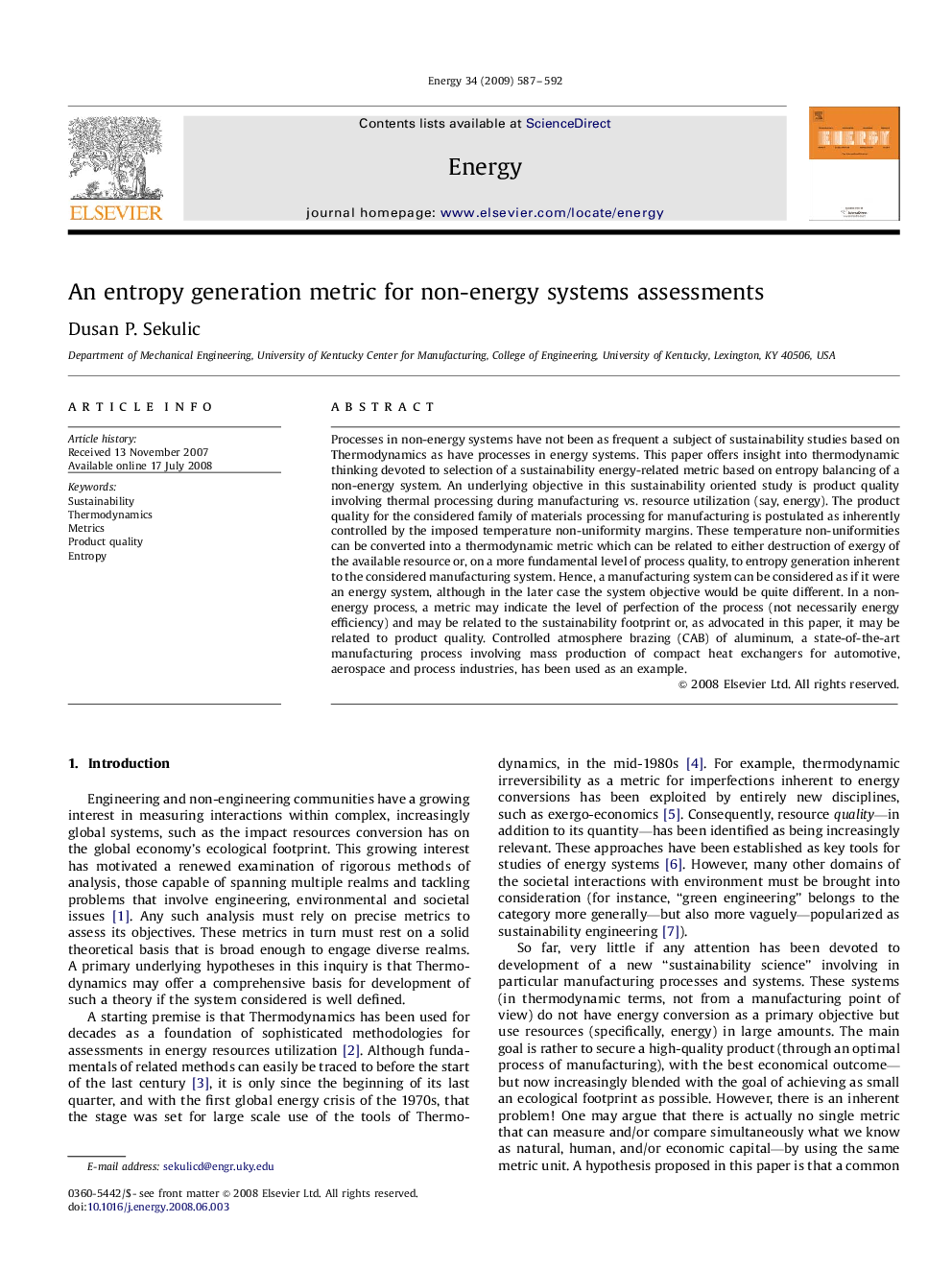| Article ID | Journal | Published Year | Pages | File Type |
|---|---|---|---|---|
| 1735879 | Energy | 2009 | 6 Pages |
Processes in non-energy systems have not been as frequent a subject of sustainability studies based on Thermodynamics as have processes in energy systems. This paper offers insight into thermodynamic thinking devoted to selection of a sustainability energy-related metric based on entropy balancing of a non-energy system. An underlying objective in this sustainability oriented study is product quality involving thermal processing during manufacturing vs. resource utilization (say, energy). The product quality for the considered family of materials processing for manufacturing is postulated as inherently controlled by the imposed temperature non-uniformity margins. These temperature non-uniformities can be converted into a thermodynamic metric which can be related to either destruction of exergy of the available resource or, on a more fundamental level of process quality, to entropy generation inherent to the considered manufacturing system. Hence, a manufacturing system can be considered as if it were an energy system, although in the later case the system objective would be quite different. In a non-energy process, a metric may indicate the level of perfection of the process (not necessarily energy efficiency) and may be related to the sustainability footprint or, as advocated in this paper, it may be related to product quality. Controlled atmosphere brazing (CAB) of aluminum, a state-of-the-art manufacturing process involving mass production of compact heat exchangers for automotive, aerospace and process industries, has been used as an example.
